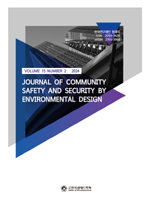- 영문명
- Perception Comparison of Restorative Policing(Restorative Dialogue): Professional Agency Facilitators vs. Police Officer Facilitators
- 발행기관
- 한국셉테드학회
- 저자명
- 임형진(Hyungjin Lim) 김문귀(Moonkwi Kim)
- 간행물 정보
- 『한국셉테드학회지』제16권 제2호, 37~82쪽, 전체 46쪽
- 주제분류
- 법학 > 민법
- 파일형태
- 발행일자
- 2025.08.30

국문 초록
이 연구는 전문기관 진행자와 경찰관 진행자가 회복적 대화에 대해 어떻게 인식하는지를 비교하기 위해 진행되었으며, 이를 위해 전문기관 진행자와 경찰관 진행자를 대상으로 심층인터뷰가 진행되었다. 심층인터뷰를 통해 각각의 대상자들이 회복적 경찰활동 필요성에 대해 어떻게 생각하는지, 회복적 대화의 효과성을 어떻게 인식하고 있는지, 회복적 대화로 적절한 대상사건에 대해서는 어떤 입장인지를 조사하였으며, 그 내용은 다음과 같이 정리될 수 있다. 먼저, 회복적 경찰활동의 필요성에 관해, 전문기관 진행자와 경찰관 진행자 모두 필요하다는 입장을 보였으나 그 이유는 다소 차이를 보였다. 다음으로, 회복적 대화의 효과성에 대한 전문기관 진행자와 경찰관 진행자의 인식은 다음과 같았다. 첫째, 회복적 대화의 피해회복에 대한 효과 관련하여, 전문기관 진행자와 경찰관 진행자 모두 긍정적인 입장이었으나 그 이유는 다소 차이가 있었다. 둘째, 회복적 대화의 재범방지에 대한 효과 관련하여, 전문기관 진행자와 경찰관 진행자 모두 회복적 대화가 기존 사건처리절차보다 더 재범방지에 효과가 있을 것이라는 데 대해 공감하고 있었다.
마지막으로, 회복적 대화에 적절한 대상사건에 대한 전문기관 진행자와 경찰관 진행자의 반응은 다음과 같았다. 전문기관 진행자는 기본적으로 모든 유형의 사건이 회복적 대화 대상사건으로 적절하다는 입장을 취하고 있었다. 그러면서, 서로 모르는 사람들 간의 재산범죄(절도, 강도 등), 서로 아는 사람들 간의 재산범죄(사기, 횡령 등), 서로 모르는 사람들 간의 폭력범죄, 가정폭력범죄, 서로 아는 사람들 간의 폭력범죄, 소년이 저지른 재산범죄, 소년이 저지른 폭력범죄, 과실범죄, 교통 관련 범죄, 강력범죄, 성범죄, 학대범죄 모두 회복적 대화 대상사건이 될 수 있다고 인식하고 있었다. 경찰관 진행자는 회복적 대화로 적절한 대상사건의 기준으로 가해자의 가해 행위 인정, 피해의 명확성, 관계성, 필요성을 제시하였다. 그러면서, 가정폭력범죄, 서로 아는 사람들 간의 폭력범죄, 소년이 저지른 재산범죄, 소년이 저지른 폭력범죄, 학대범죄는 회복적 대화 대상사건이 될 수 있다고 인식하고 있었다.
이 연구의 결과가 시사하는 정책적 제언을 정리하면 다음과 같다. 첫째, 어떤 사안이 회복적 대화에 적절한지를 판단하기 위해, 범죄 유형(소년범죄, 강력범죄, 성범죄, 학대범죄 등)이 아닌 다른 기준이 마련되어야 할 필요가 있다. 둘째, 회복적 대화는 기존 사건처리절차(수사절차 포함)를 대체하는 것이 아니라 이를 보완한다는 입장에서 추진되어야 할 것이다. 마지막으로, 전문기관 진행자와 경찰관 진행자 간에 회복적 대화에 관한 관점을 일치시키는 노력이 필요할지도 모른다.
영문 초록
This study aimed to compare how professional agency facilitators and police officer facilitators perceive restorative dialogue. To achieve this, in-depth interviews were conducted with both professional agency facilitators and police officer facilitators. Through these interviews, the study investigated each group's thoughts on the necessity of restorative policing, their perceptions of the effectiveness of restorative dialogue, and their stances on appropriate target cases for restorative dialogue. The findings can be summarized as follows:
First, regarding the necessity of restorative policing, both professional agency facilitators and police officer facilitators agreed on its necessity, although their specific reasons differed somewhat. Next, the perceptions of professional agency facilitators and police officer facilitators regarding the effectiveness of restorative dialogue were as follows: Firstly, concerning the effectiveness of restorative dialogue in victim recovery, both professional agency facilitators and police officer facilitators held positive views, but their specific reasons showed some differences. Secondly, regarding the effectiveness of restorative dialogue in preventing reoffending, both professional agency facilitators and police officer facilitators agreed that restorative dialogue would be more effective in preventing reoffending than conventional case processing procedures.
Finally, the responses of professional agency facilitators and police officer facilitators concerning appropriate target cases for restorative dialogue were as follows: Professional agency facilitators fundamentally maintained the position that all types of cases are suitable as target cases for restorative dialogue. They perceived that property crimes between strangers (theft, robbery, etc.), property crimes between acquaintances (fraud, embezzlement, etc.), violent crimes between strangers, domestic violence crimes, violent crimes between acquaintances, property crimes committed by juveniles, violent crimes committed by juveniles, negligent crimes, traffic-related crimes, serious crimes, sexual offenses, and abuse crimes could all be target cases for restorative dialogue. Police officer facilitators suggested acknowledging the perpetrator's harmful act, clarity of harm, relatedness, and necessity as criteria for appropriate target cases for restorative dialogue. They perceived that domestic violence crimes, violent crimes between acquaintances, property crimes committed by juveniles, violent crimes committed by juveniles, and abuse crimes could be target cases for restorative dialogue.
The policy recommendations suggested by the results of this study are as follows:
Firstly, there is a need to establish criteria other than crime type (juvenile delinquency, serious crimes, sexual offenses, abuse crimes, etc.) to determine what matters are appropriate for restorative dialogue. Secondly, restorative dialogue should be promoted from the perspective that it complements, rather than replaces, existing case processing procedures (including investigative procedures). Lastly, efforts may be needed to align the perspectives on restorative dialogue between professional agency facilitators and police officer facilitators.
목차
Ⅰ. 서 론
Ⅱ. 이론적 배경
Ⅲ. 연구방법
Ⅳ. 연구결과
Ⅴ. 결론
참고문헌
키워드
해당간행물 수록 논문
참고문헌
최근 이용한 논문
교보eBook 첫 방문을 환영 합니다!

신규가입 혜택 지급이 완료 되었습니다.
바로 사용 가능한 교보e캐시 1,000원 (유효기간 7일)
지금 바로 교보eBook의 다양한 콘텐츠를 이용해 보세요!



